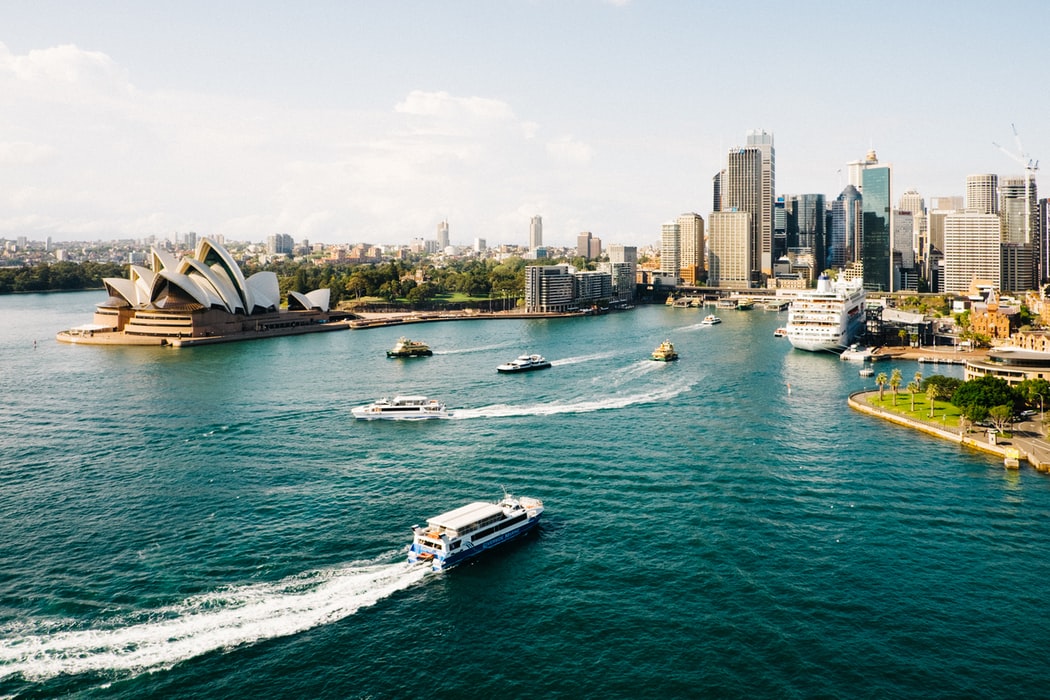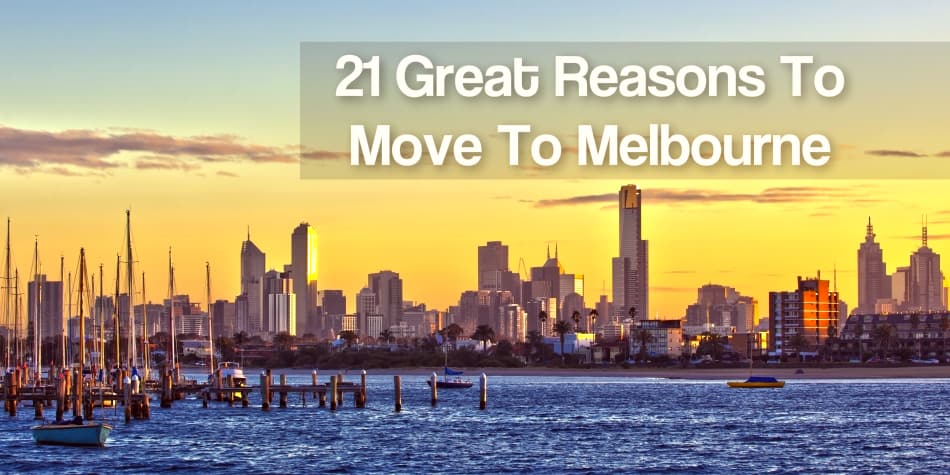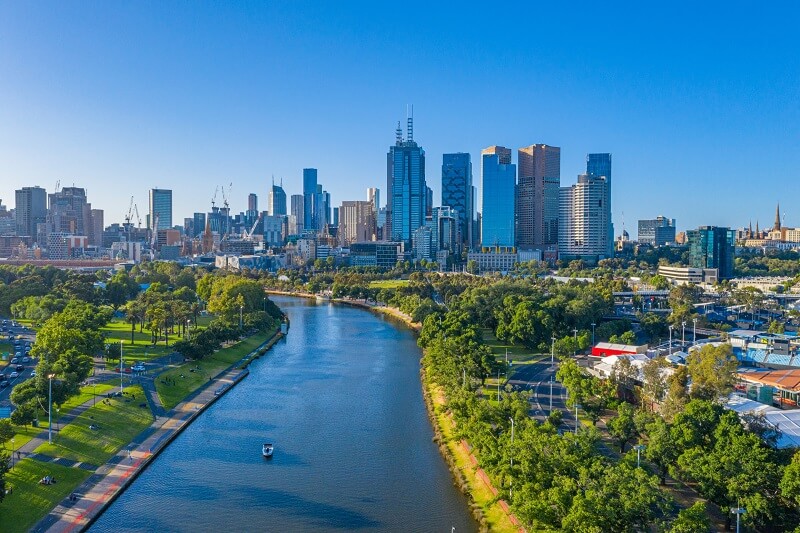Moving From Toronto To Melbourne
Relocating to a new city can be a daunting task, especially when it involves crossing continents. For those considering a move from Toronto to Melbourne, the prospect of leaving behind familiar surroundings and starting anew in a foreign land can be both thrilling and intimidating. As two of the world's most livable cities, Toronto and Melbourne offer unique cultural, economic, and lifestyle experiences. This article aims to provide a comprehensive guide for individuals making the move, covering essential information on visa requirements, housing, job opportunities, and cultural adjustments to ensure a seamless transition to life in Melbourne.

Embarking on a New Chapter: Moving from Toronto to Melbourne
Moving from Toronto to Melbourne can be an exciting yet daunting experience. The two cities are vastly different in terms of culture, lifestyle, and climate, requiring careful planning and preparation. Here are some essential factors to consider when making the move:
Visa Requirements and Immigration
When moving to Melbourne from Toronto, it's crucial to understand the visa requirements and immigration process. Australia has a points-based system, and you'll need to apply for a visa that suits your skills, qualifications, and experience. The most common visa options for Canadians include the Skilled Independent visa (subclass 189) and the Skilled Nominated visa (subclass 190). Research and consult with the Australian Government's Department of Home Affairs to determine the best option for your situation.
Cost of Living and Housing
Melbourne has a relatively high cost of living compared to Toronto. You can expect to pay more for accommodation, food, and transportation. The median rent for a one-bedroom apartment in Melbourne's city center is around AU$1,800 (CAD $1,700) per month, whereas in Toronto, it's around CAD $1,900. Research different neighborhoods and suburbs to find affordable housing options that suit your budget.
Job Opportunities and Career Prospects
Melbourne is a hub for various industries, including healthcare, finance, and technology. If you're moving for work, research companies in your field and network with professionals in your industry. You can also consider freelancing or starting your own business. The Australian Government's JobSearch website is a great resource to explore job opportunities and career prospects.
Climate and Lifestyle Adjustments
Melbourne's climate is known for being unpredictable, with four seasons in one day. The city experiences mild winters and warm summers, with an average temperature of 14°C (57°F) in winter and 22°C (72°F) in summer. You'll need to adapt to the new climate and adjust your lifestyle accordingly. Melbourne is also a culturally rich city with a vibrant arts and cultural scene, so be prepared to explore and enjoy the city's attractions.
Healthcare and Education
Australia has a public healthcare system, Medicare, which provides free or low-cost medical services to citizens and eligible residents. You may need to purchase private health insurance to cover additional medical expenses. Melbourne is also home to several top-ranked universities, including the University of Melbourne and Monash University. Research education options and healthcare services to ensure a smooth transition.
| Category | Toronto | Melbourne |
|---|---|---|
| Cost of Living Index | 74.85 | 85.35 |
| Average Rent (1-bedroom apt) | CAD $1,900/month | AU$1,800/month (CAD $1,700) |
| Average Temperature (Winter) | -2°C (28°F) | 14°C (57°F) |
| Unemployment Rate | 5.5% | 4.8% |
Is it a good idea to move from Canada to Australia?

Moving from Canada to Australia can be a significant life decision, and it's essential to weigh the pros and cons before making a move. Here are some points to consider:
Climate and Lifestyle
One of the most notable differences between Canada and Australia is the climate. Australia is known for its warm and sunny weather, with an average temperature of 29°C (84°F) in summer and 15°C (59°F) in winter. In contrast, Canada's climate varies greatly depending on the region, with cold winters and mild summers. If you're someone who enjoys outdoor activities and warm weather, Australia might be an attractive option. However, if you prefer a colder climate, you might miss the changing seasons in Canada.
Beach culture: Australia is famous for its stunning beaches, and the laid-back lifestyle that comes with it.
Outdoor activities: With its warm climate, Australia offers a wide range of outdoor activities, such as surfing, hiking, and cycling.
Climate change: Australia is experiencing the impacts of climate change, such as bushfires and droughts, which could be a concern for some individuals.
Cost of Living and Job Opportunities
The cost of living in Australia is generally higher than in Canada, especially when it comes to housing and transportation. However, Australia also offers higher average salaries to compensate for the increased cost of living. Job opportunities in Australia are plentiful, especially in industries such as healthcare, technology, and mining.
Higher salaries: Australia offers higher average salaries than Canada, which can help offset the increased cost of living.
Job opportunities: Australia has a strong economy with a wide range of job opportunities, especially in industries with a high demand for skilled workers.
Visa requirements: Canada and Australia have a reciprocal work visa program, making it easier for citizens to live and work in each other's countries.
Healthcare and Education
Both Canada and Australia are known for their high-quality healthcare systems, but there are some differences in how they operate. Australia's public healthcare system is generally considered to be more comprehensive than Canada's, with a stronger focus on preventative care. When it comes to education, both countries offer high-quality public and private schools, as well as world-class universities.
Public healthcare: Australia's public healthcare system, Medicare, is generally considered to be more comprehensive than Canada's.
Education system: Both Canada and Australia offer high-quality public and private schools, as well as world-class universities.
International student fees: Australia is a popular destination for international students, which can impact the cost of tuition fees for foreign students.
Is Toronto or Melbourne better?

Determining which city is better between Toronto and Melbourne largely depends on individual preferences and priorities. Both cities have their unique strengths and weaknesses, making it essential to evaluate them based on various criteria.
Cost of Living and Job Market
When it comes to the cost of living, Toronto is generally more expensive than Melbourne. Rent and housing costs in Toronto are significantly higher, especially in the downtown area. However, Toronto's job market is more diverse, with a strong presence of industries such as finance, technology, and healthcare. Melbourne, on the other hand, has a more balanced economy with a mix of industries, but the job market is not as vast as Toronto's.
- Toronto's average rent for a one-bedroom apartment is around $2,000 CAD per month.
- Melbourne's average rent for a one-bedroom apartment is around $1,800 AUD per month.
- Toronto has a higher average salary, with the median income being around $65,000 CAD per year.
Climate and Environment
Toronto has a humid continental climate with cold winters and warm summers, while Melbourne has a more temperate climate with mild winters and cool summers. Melbourne is also known for its cultural and artistic vibe, with a strong focus on sustainability and environmental initiatives.
- Toronto experiences an average of 121 cm of snowfall per year, while Melbourne experiences minimal snowfall.
- Melbourne has a strong focus on sustainability, with a goal of becoming carbon neutral by 2020.
- Toronto has a higher level of air pollution due to its industrial activities.
Lifestyle and Leisure
Both cities offer a vibrant cultural scene, with numerous museums, galleries, and festivals. However, Melbourne is often considered more laid-back and family-friendly, with a strong emphasis on outdoor activities. Toronto, on the other hand, is more fast-paced and urban.
- Toronto has a diverse range of neighborhoods, each with its unique character.
- Melbourne has a more extensive network of bike lanes and pedestrian-friendly streets.
- Toronto has a more vibrant nightlife scene, with a greater variety of bars and clubs.
Is it worth it to move to Melbourne?

Quality of Life
Melbourne is consistently ranked as one of the most livable cities in the world, and for good reason. It offers a high quality of life, with a mix of cultural, sporting, and entertainment events, as well as a thriving food and coffee scene. The city has a strong sense of community, with many neighborhoods having their own unique character. Additionally, Melbourne has a mild climate, with four distinct seasons, which makes it ideal for people who enjoy seasonal changes.
- Cultural events: Melbourne hosts many cultural events throughout the year, including the Melbourne Festival, Melbourne Comedy Festival, and the Australian Open.
- Foody scene: Melbourne is known for its food and coffee culture, with many restaurants, cafes, and markets to explore.
- Neighborhoods: Melbourne has many unique neighborhoods, each with its own character, such as Fitzroy, Carlton, and St Kilda.
Job Opportunities
Melbourne is a hub for many industries, including technology, healthcare, finance, and education. The city has a strong economy, with many job opportunities available, particularly in these industries. Additionally, Melbourne is home to many startups and entrepreneurs, making it an ideal location for those looking to start their own business.
- Industries: Melbourne has a strong presence of industries such as technology, healthcare, finance, and education.
- Startups: Melbourne has a thriving startup scene, with many incubators and accelerators available.
- Job market: Melbourne has a strong job market, with many job opportunities available, particularly in the industries mentioned above.
Education
Melbourne is home to some of the top universities in Australia, including the University of Melbourne and Monash University. The city also has a wide range of vocational training and education options, making it an ideal location for students. Additionally, Melbourne has a strong focus on innovation and research, with many institutions and organizations investing in these areas.
- Universities: Melbourne is home to many top-ranked universities, including the University of Melbourne and Monash University.
- Vocational training: Melbourne has a wide range of vocational training and education options, making it ideal for students.
- Innovation and research: Melbourne has a strong focus on innovation and research, with many institutions and organizations investing in these areas.
Why are so many people moving to Melbourne?

Melbourne, the second-most populous city in Australia, has been attracting a large number of migrants and locals alike, making it one of the fastest-growing cities in the country. So, what makes Melbourne so appealing?
Job Opportunities and Economic Growth
Melbourne's strong economy, fueled by a diverse range of industries, offers a wide range of job opportunities across various sectors. The city is home to a thriving startup scene, a strong finance sector, and a growing healthcare industry, making it an attractive destination for professionals.
- Highly skilled workforce: Melbourne is known for its highly educated and skilled workforce, with a strong presence of top-ranked universities and research institutions.
- Innovation hubs: The city is home to several innovation hubs, including the Melbourne Innovation District, which provides a platform for startups and entrepreneurs to collaborate and grow.
- Growing industries: Melbourne's economy is driven by growing industries such as healthcare, technology, and advanced manufacturing, providing a range of job opportunities.
Unparalleled Lifestyle and Cultural Attractions
Melbourne's cultural and lifestyle attractions are unmatched, making it an attractive destination for people looking for a great work-life balance. The city is renowned for its vibrant cultural scene, world-class restaurants, and a strong sports culture.
- Cultural attractions: Melbourne is home to a range of cultural attractions, including museums, galleries, and theaters, making it a hub for art and culture lovers.
- Food and coffee culture: The city is famous for its coffee culture and has a thriving food scene, with a wide range of restaurants and cafes serving cuisine from around the world.
- Sporting events: Melbourne hosts a range of international sporting events, including the Australian Open tennis tournament and the Melbourne Cup horse racing carnival.
Education and Research Opportunities
Melbourne is home to some of the world's top-ranked universities and research institutions, making it an attractive destination for students and researchers.
- Top-ranked universities: Melbourne is home to several top-ranked universities, including the University of Melbourne and Monash University, which offer a wide range of undergraduate and postgraduate programs.
- Research opportunities: The city is a hub for research and innovation, with several research institutions and centers of excellence, providing opportunities for students and researchers to collaborate and grow.
- International student community: Melbourne has a large and diverse international student community, making it an attractive destination for students from around the world.
FAQ
What is the best way to transport my belongings from Toronto to Melbourne?
When relocating from Toronto to Melbourne, one of the most significant concerns is how to transport your belongings safely and efficiently. There are several options to consider, including air freight, ocean freight, and land freight. Air freight is the fastest option, taking around 2-5 days, but it's also the most expensive. Ocean freight, on the other hand, is a more cost-effective option, taking around 30-40 days, but it's more suitable for larger shipments. Land freight is not a viable option for international moves. It's essential to research and chooses a reputable international moving company that can assist you in packing, loading, and transporting your belongings.
Moving from Toronto to Melbourne requires more than just packing your bags; it also involves navigating the complex Australian visa process. To live and work in Australia, you'll need to apply for a subclass 189 visa, subclass 190 visa, or subclass 491 visa, depending on your occupation, skills, and qualifications. The visa process can be lengthy, taking several months, so it's crucial to start the application process as early as possible. You'll need to provide documentation, including birth certificates, passport, marriage certificates, and police certificates, among others. It's recommended to consult with a registered migration agent to ensure a smooth and successful application process.
What are the costs associated with moving from Toronto to Melbourne?
The cost of moving from Toronto to Melbourne can be substantial, and it's essential to budget accordingly. The total cost will depend on several factors, including the volume of your belongings, shipping method, and distance. On average, the cost of shipping a 20-foot container from Toronto to Melbourne can range from $2,000 to $5,000. Additionally, you'll need to consider the cost of flights, accommodation, and living expenses in Melbourne. It's recommended to create a comprehensive moving budget that includes all the expenses involved in the relocation process.
How do I adjust to the cultural and lifestyle differences in Melbourne?
Moving from Toronto to Melbourne can be a cultural shock, and it's essential to prepare yourself for the differences in lifestyle, customs, and way of life. Melbourne is known for its vibrant cultural scene, coffee culture, and outdoor lifestyle. To adjust to the new environment, it's recommended to research Melbourne's neighborhoods, join expat groups, and attend local events. You should also be prepared for the reverse seasons, as Melbourne's climate is opposite to Toronto's. By being open-minded and flexible, you can easily adapt to the cultural and lifestyle differences in Melbourne and make the most of your new life.
